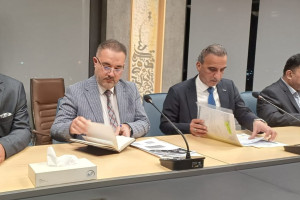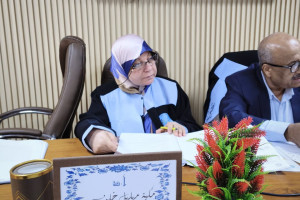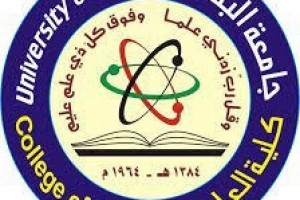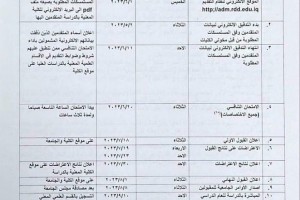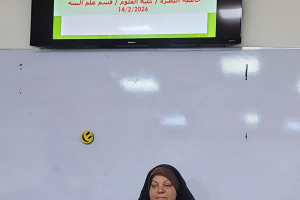
The Department of geoscience at the college of Science discussed a doctoral dissertation entitled"seismic reflection analysis to improve the geological model of the Mushrif formation in the halafaya oil field in southeastern Iraq".
Researcher: Jawad Kazem Radhi al-Bahadli.
The study aims to determine the physical properties of rocks by interpreting well Records and analyzing seismic data. The study involved the use of seismic reflection technology to convert seismic data into acoustic impedance. This impedance is used as a fundamental indicator to predict key reservoir properties such as porosity, permeability, and water saturation at the whole field scale. The results came to the conclusion that the use of seismic data, providing full coverage of the reservoir, significantly reduced the uncertainty of its characterization. These results demonstrate the effectiveness of integrating seismic reflection and artificial intelligence technologies in improving the accuracy of three-dimensional geological models, providing a deeper and more reliable understanding of oil reservoirs, even in areas lacking direct well data. The study recommends to improve the assessment of reservoirs by integrating advanced seismic techniques, integrating fault modeling and geomechanics. It also calls for these successful methodologies to be applied to other fields and configurations.

